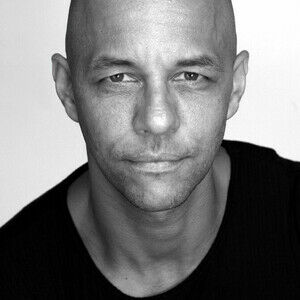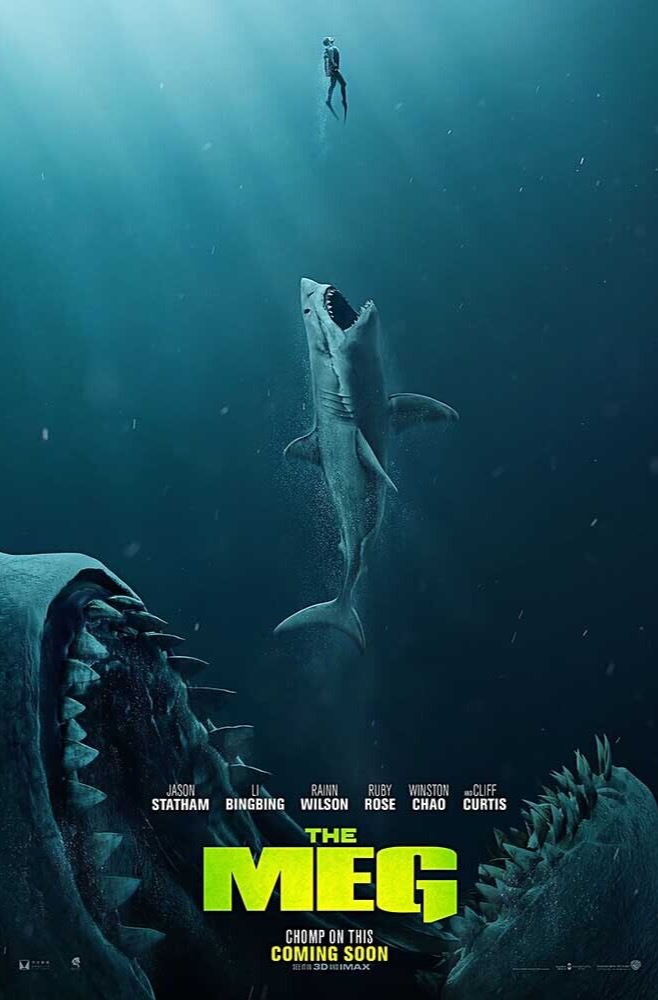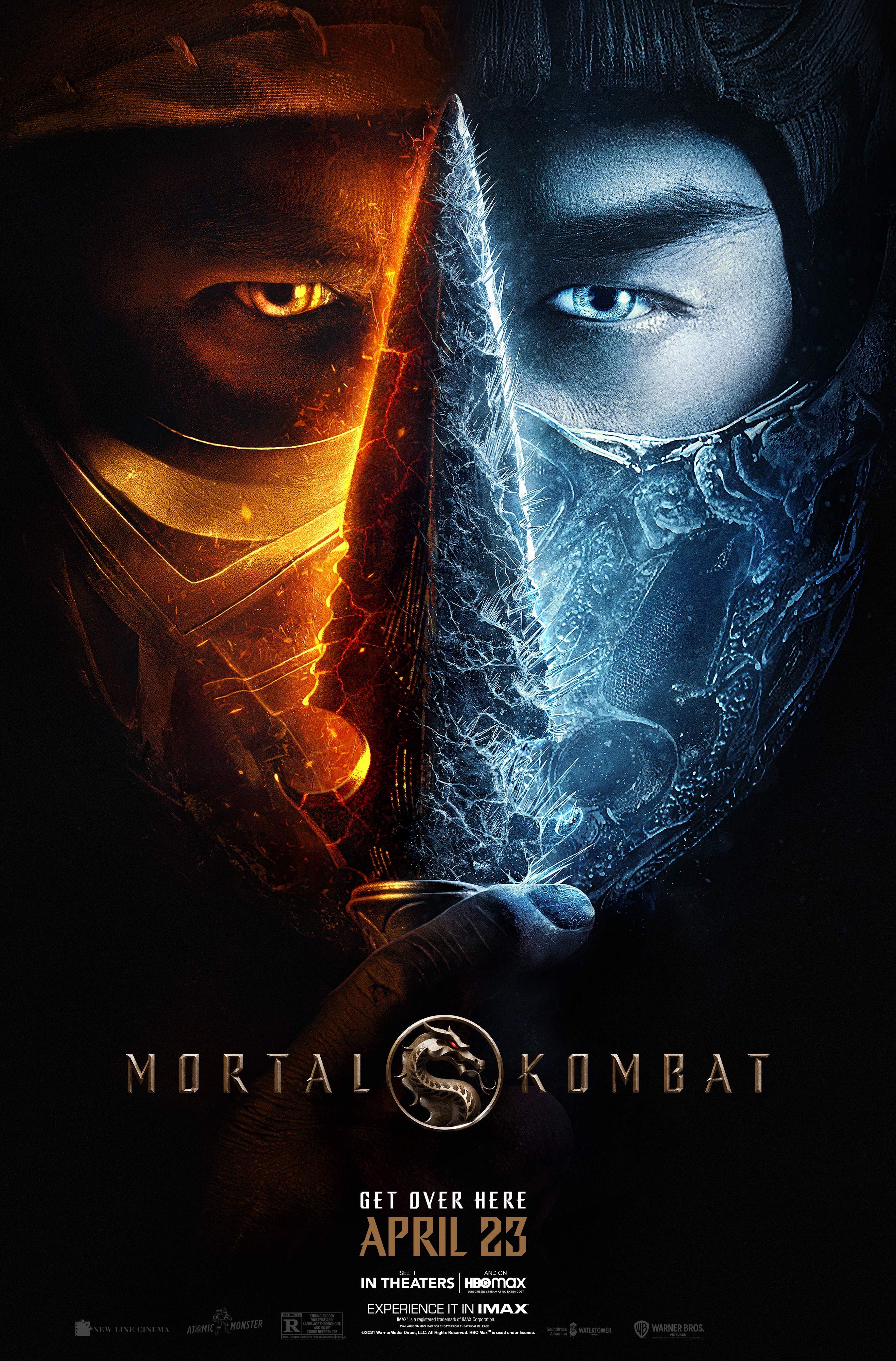How to Plan and Shoot Action Sequences - Learn From a SAG Award -Nominated Stunt Performer (THE MEG, AQUAMAN)


Webinar hosted by: Philippe Deseck
SAG-nominated Stunt Performer & Coordinator,
Philippe Deseck has been involved in the film industry for over twenty years as a Stunt Performer and Stunt Coordinator earning him a Screen Actors Guild Nomination for outstanding performance by a stunt ensemble in motion picture Shang-Chi and the Legend of the Ten Rings. Having worked on nearly 50 films & TV shows, some of his notable credits include Street Fighter, The Chronicles of Narnia: The Voyage of the Dawn Treader, Killer Elite, Spartacus, San Andreas, Kong Skull Island, Pirates of the Caribbean: Salazar’s Revenge, The Meg, Aquaman, Mortal Combat, The Tidings for Netflix and his SAG Nomination for Shang-Chi and the Legend of the Ten Rings and many more. He is regularly commissioned for major motion pictures to create the Previs where he recreates the live action sequences required in the script of the movie. He has hosted stunt workshops around the world for actors and is dedicated and passionate about a life in film and televison. Full Bio »
Webinar Summary

Learn everything you need to know about how prep and shoot a world-class action sequence in your films or TV shows from a SAG-nominated stunt performer and coordinator on THE MEG, AQUAMAN, MORTAL COMBAT, STREET FIGHTER, KILLER ELITE, SPARTACUS and more!
Action is a universal language in film.
A well designed and well shot action scene in a movie can define a film and be the most memorable part, whether its Steve McQueen's car chase in BULLITT or Tom Cruise's motorcycle jump in MISSION IMPOSSIBLE - DEAD RECKONING PART ONE. However, film schools tend to shy away when it comes to teaching students on how to shoot an action sequence. It’s either too dangerous, too expensive, stunt coordinators are required, insurance does not cover action sequences, or a myriad of other. reasons. As such, many filmmakers only focus on drama as they do now know how to craft and execute an action sequence in a professional and safe manner. The result is most filmmakers miss out on the opportunity to expand their film making skills when it comes to shooting action. On independent films, more often than not, action is usually the first thing producers will cut out of a script in order to meet their budget criteria.
In this exclusive Stage 32 webinar, stunt performer and coordinator Philippe Deseck will take you through the fundamentals of how to shoot an action sequence like a pro. Philippe has been involved in the film industry for over twenty years as a Stunt Performer and now Assistant Stunt Coordinator. Some of his films include THE MEG, AQUAMAN, MORTAL COMBAT, STREET FIGHTER, KILLER ELITE, SPARTACUS, SAN ANDREAS, KONG SKULL ISLAND, PIRATES OF THE CARIBBEAN: SALAZAR’S REVENGE, THE CHRONICLES OF NARNIA: THE VOYAGE OF THE DAWN TREADER, SHANG-CHI, and many more… In addition to his credits as a Stunt Performer, Philippe is gets involved in directing and editing, giving him expert perspective on how to create masterful action sequences from all sides. His skill has also taken him to performing safety on set and writing safety reports for action sequences. Philippe has also taught action workshops for actors and has taught stage combat at the New York Film Academy in Australia.
Philippe will teach you everything you need to know about shooting action sequences. He will demonstrate the basic fundamentals which can be applied to any action sequence and he will show you how to bridge the gap between a stunt coordinator and a director so they get the most out of every opportunity together. Building productive, effective and trusting relationships is an important part in any filmmaking process and it is critical when it comes to filmmakers and stunt coordinators.
In this information-packed webinar you will learn how to design an action sequence from script to final print on film and how you can collaborate with all relevant departments in order to get the shots required and piece them together to take your audience on a ride they will never forget. You will walk away with a comprehensive understanding of the different filming styles that are used in Hollywood and around the world, and you will get a true sense of how to create the illusion of action safely.
This webinar is a rare opportunity to educate yourself and open your mind to new possibilities of how to design your action sequences, shoot them and have them shown on the silver screen.

What You'll Learn
An Introduction to Stunts/Action
- What is the function of a Stunt Coordinator
- What is the function of a 2nd Unit Director
- What is the function of an Action Director
- What is the function of a Stunt Double
- What is the function of a Choreographer
What are the different hierarchy systems used in Hollywood and Asia
- What is the difference between Hollywood and Asia
- Where does the Stunt Coordinator fit in
- Where does the 2nd Unit Director fit in
- Where does the Action Director fit in
- Who are the most renown Action Directors in the film industry
- Recommended movies to watch
Designing your Action Sequence from Script to Final Product
- What’s your interpretation of the Script
- Deciding what System is going to be used in order to hire the right people
- Hiring a Stunt Coordinator, 2nd Unit Director, Action Director
- Using Insurance indemnity
- Thought pattern of the Stunt Coordinator
- Designing the Action with the Stunt Performers
- Designing the Action with the Actors
- Collaborating with the different HODs (Head of Departments) such as Art Department, Props Department, Costume Department, Make-Up Department, Special FX, Visual FX, DOP, Writers, Directors
- Creating a Pre-Set Design and demonstrating your Action Sequence
Filming an Action Sequence
- First Rule of Film Making
- What are the different filming Styles – Master Shots vs Sequential Shooting, Docu Drama Action, Symmetric Shots, Shakey Camera vs Steady shots on a tripod
- Story line of an Action Scene: Beginning – Middle and End, Protagonist, Antagonist
- Filming of Time within an Action Scene: Long Span of Time, Short Span of Time
- How to create the Illusion of Action: How to make things look real in an unreal manner
- How to Film an Action Sequence using Stunt Doubles
- How to Film an Action Sequence with Visual Effects in mind
- The Rule of Three shots per action
- Using a Stunt Lens
- Framing of an Action Shot
- The benefits of using Variable Frame Rates in your Action Scene
Previsualization
- Benefits of using Live Action Previsualization AKA Previs
- Examples of Previs with animation and without animation
- Different kinds of Previs used e.g. audience rating Previs
- What to look out for when presenting your Previs to Directors/Producers
Editing an Action Sequence
- Principles of Editing an Action Sequence
- The use of Sound FX
- The Difference of editing Master Shots vs editing Sequential Shooting Shots
How to Practice Shooting Action Sequences
- Find a simple action scene and recreate it shot for shot
- Create a storyboard of the action sequence
- Splice the action sequence and duplicate each shot
- Rehearse with your performers
- Use a camera with variable frame rates
- Use a camera with interchangeable lenses
- Start experimenting with your own shots
Q&A with Philippe
About Your Instructor

Philippe Deseck
FAQs
Q: How do I watch my webinar live?
A: If you received a confirmation that your webinar is on Go to Webinar, you will receive an email from Go to Webinar with further instructions for participating in the live webinar. You can also access your webinar link in your purchase history located under settings in the top right-hand corner of your Stage 32 profile.
If you received a confirmation that your webinar is on Zoom, you will receive a separate email from Zoom with further instructions for participating in the live webinar. Your login link will not be in your Stage 32 profile. If you did not receive your link via Zoom please email support@stage32.com.
Q: How do I watch my webinar on demand?
A: You will be able to watch your webinar on demand as many times as you’d like inside your Stage 32 profile. The recording is processed and posted between 24-48 hours after the webinar concludes. You can follow the instructions below.
YOU MUST HAVE A STAGE 32 PROFILE TO WATCH YOUR VIDEO – STAGE 32 IS FREE TO JOIN
If You Already Have a Stage 32 Profile:
- Log into your Stage 32 profile
- Click "Settings" in the top right-hand corner (gear icon)
- Click "Purchase History"
- Choose this webinar and click the link to view
- Go to www.stage32.com
- Create a profile using the SAME email address you used to sign up for this webinar. The email addresses must match in order to watch the webinar.
- Once you have your profile set up, you can view the webinar by clicking "Settings" in the top right hand corner (gear icon)
- Click "Purchase History"
- Choose this webinar and click the link to view
Q: What is the format of a webinar?
A: Stage 32 Next Level Webinars are typically 90-minute educational broadcasts that take place online using a designated software program from Stage 32. Your webinar will be taught by a working industry professional with in-depth teaching on a topic. If you are able to attend live you will be able to ask your Stage 32 Educator questions during Q&A.
Q: What are the system requirements to watch my webinar live?
A: You will need to meet the following system requirements in order to run the webinar software: Windows 7 or later Mac OS X 10.9 (Mavericks) or later.
If you have Windows XP, Windows Vista and Mac OS X 10.9 (Mountain Lion): The webinar software does not support these operating systems. If you are running one of those operating systems, please upgrade now in order to be able to view a live webinar. Upgrade your Windows computer / Upgrade your Mac computer.
Q: What if I cannot attend the live webinar?
A: If you cannot attend a live webinar or purchase an on demand webinar, you will have access to the entire recorded broadcast, including the Q&A.
Q: Will I have access to the webinar afterward to re-watch?
A: Yes! Like all Stage 32 education, after the purchase of a live or on demand webinar, you will have on-demand access to the recording.
Q: How do I get a copy of the handouts provided?
A: If the webinar you take included handouts you can find them as downloads underneath your on demand video. You must be logged into your Stage 32 profile to view the video and get the handouts by clicking settings in the top right hand corner, then clicking purchase history.
Q: What if I need accessibility and accommodations?
A: Email support@stage32.com to request accommodations.
Thanks for your loyalty to Stage 32 Education. We value having you in the Stage 32 community.
If you have any further questions, we are always happy to help. Please contact Stage 32 support at support@stage32.com.
Relevant Tags
Share with friends:
Questions?
Other education that may be of interest to you:
Pitching Tips from the Pros: Your Blueprint to a Successful Pitch
The art of the pitch. In many ways, outside of honing your craft, your ability to pitch may just be the most important skill you can learn as a creative. At its core, pitching is storytelling. But the ability to be a clear, concise storyteller, and, as a result, be someone who can deliver a memorable and winning pitch is something that takes time, knowledge, a clear strategy, and repetition. Understanding how to pitch any person or audience will give you a clear and tremendous advantage in any situation or room. You will stand out from the hundreds if not thousands of pitches a gatekeeper or decision maker hears in a given year. But further, learning how to pitch will help you build confidence, a huge variable in winning over those looking to work with you, buy your material or invest in your project. The bottom line: Whether you're a screenwriter, filmmaker, producer, or any creative or industry professional looking to gain representation, sell their material, attract talent, raise financing, or simply looking to find work, you WILL have to pitch. Further, you WILL be in competition with others pitching as well. You've put so much time and effort into your work and building your reputation, you don't want to have it all undermined with a terrible pitch. And the truth of the matter is that most people that pitch make the same fatal mistakes over and over. They don't know how to tell a concise, riveting story. They don't know what to put in, what to leave out, and what elements really and truly sell someone on their story. But not you. Not anymore. You're about to become a pitching ace.
Showrunning 101
4-PART IN-DEPTH CLASS (OVER 8 HOURS OF EDUCATION) Learn from a professional showrunner who's worked with Norman Lear, the creators of FRIENDS, TBS, Hulu, Sony, and more! For many television writers and creators, becoming a showrunner is the dream job. And the role seems fairly straightforward: deliver quality episodes on time and on budget. But anyone who has been or worked with a showrunner knows that goal is easier said than done. A showrunner must straddle both the creative and business sides of television. They manage the writers’ room, talent, and directors, and they help keep a unified vision of the show while also managing budgets, schedules, the crew, and executives’ expectations. With so much to learn and understand, it seems crazy that most showrunner’s learn the position on the job! But in this exclusive Stage 32 class, you’ll learn everything you need to know about what a showrunner does, how they do it, and how you can excel at it. Over his 30-year entertainment career, John Lehr has worked under amazing showrunners, from legendary Norman Lear to FRIENDS’ creators Kevin Bright, David Crane, and Marta Kauffman. John has also created and served as showrunner on his own series for TBS, Sony, and Hulu. Over four sessions, John will show you what it takes to be a showrunner and, ultimately, everything that goes into making a television series. You’ll cover the differences between creator and showrunner, how seasons and episode budgets differ, overseeing departments so that you’re not micromanaging, handling production setbacks, working with network executives, and more. By the end of these four sessions, you’ll have more information about showrunning than many first-time showrunners. Whether you’re looking to become a showrunner or team up with one for your project, this class is an invaluable opportunity to learn how it’s done from a professional showrunner.
How To Write Characters A-List Actors Will Want To Play
If you’re an independent filmmaker, one key part to getting your film greenlit will probably involve casting recognizable talent for your lead role(s). Whether it’s as a condition for financing, or a means to attract financing, you need to have written a part that top talent will want to play. It’s not enough to have a great concept, you need to have great characters. In this exclusive Stage 32 Next Level Webinar we are going to unpack what makes a character compelling, what actors look for in a role, tips for your writing or rewriting process, and common mistakes to avoid. The goal is to give you the tools to assess your protagonist (and perhaps your antagonist) and make them the kind of roles top talent will be eager to play. To help you on your journey is Claudia Myers who is a writer, director and producer who has worked on nearly 2 dozen films. Recently she wrote and directed ABOVE THE SHADOWS on Hulu which stars Megan Fox, Jim Gaffigan, Olivia Thirlby and Alan Ritchson. She also wrote, directed and produced FORT BLISS starring Michelle Monaghan and Ron Livingston and KETTLE OF FISH starring Mathew Modine and Gina Gershon which premiered at the Tribeca Film Festival. You will walk away feeling confident that the characters on your page will grab the interest of the top talent you envision playing them.
How Film Commissions Work And Help Producers Bring Their Projects To Life
Lights! Camera! Collaboration! Learn how to best work with Film Commissions to help produce your project from the former Film Commissioner of Puerto Rico! PLUS! You will receive exclusive handouts to help guide you through the world of production and film commissions. What is a film commission? Most of us have heard that film commissions exist but have no idea what they actually do. Are they a regulatory body? How and why are film commissions broken up by region? And, most importantly, can they actually help you get your film made? In this exclusive Stage 32 webinar, you will learn the critical role that film commissions play in supporting producers, filmmakers and their local production community. By working closely with a film commission, producers can access a wealth of local knowledge and expertise, helping them create a successful and memorable production. The world of film production can be complex and challenging. From overcoming logistical issues to finding the perfect location and navigating the regulatory environment, film commissions can be valuable partners in your filmmaking process if you know how to utilize them. This webinar will teach you everything you need to know about film commissions so you can take advantage of their support and resources to help you achieve your vision on your next project. Guiding you through how film commissions work is Rosi Acosta, former Film Commissioner for Puerto Rico, Unit Production Manager (UPM), and DGA member who has worked on over 75 film and television projects, including the feature films DRIVEN, SPEED KILLS, and IMPRISONED. As a seasoned physical production professional, advocate, spokesperson, mentor, content writer and film commissioner, Rosi Acosta's career in the film industry has been driven by passion and her love of film and television. In this webinar, you will learn the key ways that your local film commissions can help you succeed on your productions including location scouting, how to navigate financial incentives, and the benefits of community engagement. We'll discuss best practices to creating truly exceptional film projects through collaboration, creativity, and active partnerships with film commissions. PLUS! You'll receive exclusive handouts to help guide you through the world of production and film commissions. Downloads include: Step-by-step guide to working with a film commission Sample letter to a film commission Rosi will share her vast knowledge of film commissions with you and explain how you can utilize film commissions properly and effectively to achieve your goals. Praise for Rosi Acosta's Teaching with Stage 32 "Rosi Acosta is, in a word, awesome. She is a treasure of knowledge and easy to understand! Incredibly detailed." -- Lawrence W. "Rosi, your 30 years of experience shined through today. You broke down this so it's easily understandable and now I know that my production this year will be union!" -- Rachel G. "Awesome explanations of the unions, guilds and organizations. Very comprehensive." -- Paul F. "You made this so easy to understand. Thanks Rosi!" -- Brandon C. "Putting together my first film as a producer almost made my jump off a cliff. I wish I would have seen this first! What a world of difference it would have made. Thank you, Rosi!" --Marlene D.
An AD's Guide to Being a First Time Director - How to Avoid Mistakes from Prep to Production
Learn from a DGA Assistant Director whose worked with Directors Clint Eastwood, John Singleton, Spike Jonze and Sam Raimi, as well as actors Matt Damon, Meryl Streep, Will Ferrel, Octavia Spencer and more! John Mattingly, a Director's Guild of America member and First Assistant Director for over 25 years, is coming to Stage 32 in this exclusive on-demand webinar to teach first time directors what he's learned about directing from his time working with some of the most successful directors and biggest stars in the world. You may have a sense of what you want to put on screen as a director but navigating the actual process of directing and the culture of working on set and with a crew is incredibly challenging especially for first time directors. Stepping on set prepared to work with the cast and crew can be the difference maker when it comes to achieving every day's goals, getting the shot that you want or getting the performance that you need. Managing a set takes a delicate balance of leadership skills. Every person plays a critical role in achieving the most out of a day on set and the director is the most influential part of that equation. John has been working as an Assistant Director for more than 25 years on a variety of productions, including high budget features, low budget indies, episodic television, commercials, music videos, documentaries and even photoshoots. John currently co-chairs the Education Committee for the Western AD/UPM Council of the DGA. He's worked with directors such as Clint Eastwood, Sam Raimi, Spike Jonze and John Singleton and stars such as Meryl Streep, Matt Damon, Ryan Reynolds, Will Ferrel, Melissa McCarthy, Octavia Spencer, Jason Batmen and more. John has seen directors win, fail and everything in between and he is going to share the secrets of success for first time directors as well as the key pitfalls to avoid. There are many hurdles to jump and pitfalls to avoid when prepping and shooting a feature, episode or commercial. This course will help you avoid some common mistakes and prepare you to lead a cast and crew. You will walk away from this course with concepts to help you be the best director you can be, tips on how to get the most our of your cast and crew and insights on how you can be the best on-set leader that you can be. PLUS! You'll receive: Storyboard example Director's checklist Praise for John's Stage 32 Teaching "John is an incredible educator and professional. His teaching style is very thorough which is necessary when covering this topic. I highly recommend taking one of his courses." - Jon S. "I've never been an AD (always a writer) but learning from John's immense experience as an AD has greatly informed my directorial choices on my first film. I'm incredibly grateful for the opportunity to learn from him. Thank you!" - Omar U. "Can't recommend John enough! He's one of my favorite teachers on Stage 32. Take his course and you'll see why." - Mary M.
How To Make A Feature Film Based On Your Short Film
Learn how to turn your short film into intellectual property (IP) that you can then develop and make as a feature film from esteemed literary manager Nicholas Bogner of Affirmative Entertainment, whose client's short films have gotten feature films deals with major companies like Steven Spielberg's AMBLIN PARTNERS! PLUS! You'll receive the scripts for the short film LARRY and the feature film based off the short, COME PLAY, that was produced by Amblin. Intellectual Property (IP), such as books, toys, comic books, graphic novels, short stories, etc., are a bedrock of film and television development. This year's biggest films, including BARBIE and OPPENHEIMER, are based on pre-existing IP. The reality of the current film and television marketplace is that it is increasingly difficult to sell your project if it is not based on any IP. And that's why making a short film that can then be used as IP that you develop into a feature film has become a proven avenue to success. There is an absolute obsession in the marketplace to have material based on pre-existing IP as a way to mitigate the risk of the investment in the project. If there’s already been an audience for the book, short film, article, etc., then film and television buyers feel at ease that there will be a built in audience for their large investment into the film. While original films and series do get made, it is particularly challenging for new and emerging writers and filmmakers to get their project sold if it is not based on IP. However, there is a way for you to create your own IP without having to spend big bucks to buy the rights to a book or a person’s life, and that is to make your own short film! One notable example of a short film leading to a feature film is Damien Chazelle's WHIPLASH, which became the Academy Award winning feature film of the same name and launched Damien Chazelle's career (he went on to write and direct LA LA LAND, FIRST MAN, and BABYLON). In this exclusive Stage 32 Webinar, you will learn how you can use your short film as IP to help sell your feature film or television project. You could be sitting on a gold mine with your short film, and we’re going to help you figure out how to leverage it to make your larger project. Teaching you everything you need to know about how to use your short film as IP for a feature film or television project is literary manager Nicholas Bogner of Affirmative Entertainment. Former VP of Original Programming at TNT and head of development at CRUISE/WAGNER, Nicholas’ clients have had immense success making shorts and creating their own IP. In an information packed 90 minutes, Nicholas will share how he guided his client Jacob Chase to success through his short film. Jacob made the short LARRY, which was then sold in a bidding war to Steven Spielberg’s company, AMBLIN PARTNERS. Jacob’s concept was subsequently made into a feature film for Amblin and Focus Films with the new title of COME PLAY. Subsequently, Jacob made a short film titled MR. BLUR, which sold to BLUMHOUSE, and is currently being adapted into a feature film. Many of Nicholas’ other clients have also made shorts which has led to representation and future projects. You will walk away from this webinar with the skills and industry insight you need to use your short film as IP to leverage a feature film or television series deal. PLUS! You’ll receive exclusive handouts to help you create IP out of your short film. Downloads include: Script for the short film LARRY Script for the feature film COME PLAY based off LARRY









